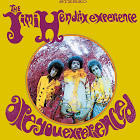Pronouns are just as important as names
Walking into your classroom on the first day of school, you settle into your seat, look around at your classmates, and dread the looming introductions between your professor and everyone else.
But this time it’s different.
Your professor asks your name, your major – and your pronouns.
To some, it’s reassuring.
To others, it’s awkward.
Maybe, it’s no big deal.
But it is becoming more and more important each day.
In 2016, a study by the Williams Institute showed that about .58% of the Vermont population identifies as transgender. If a person is transgender, it means they identify as a gender that differs from the gender they were assigned at birth.
But that doesn’t mean that the binary of male and female is all there is.
A 2019 Canadian study found that 19% of its 906 respondents identify as non-binary. Non-binary is a term that is used to describe genders that don’t fall into the categories of male or female. Typically, someone who identifies as non-binary uses the pronouns they/them.
“I think it’s important for students to be able to tell others how they want to be referred to as, and how they identify,” says Sam Davis-Boyd, a Media and Communications professor, who recently moved here from California with her wife. “I think it’s also important to make them feel comfortable and empowered to share that with me as well as their classmates if they choose to.”
Davis-Boyd, a new professor on campus, asked her students in the beginning of the year for their preferred pronouns because she wants them to know that she is an ally, and it’s important to her that she’s referring to students how they want to identify as.
“Also, making it incredibly clear that these are not preferred pronouns – these are their pronouns. There is no preference, these are mandatory. If a student says ‘these are my pronouns,’ that is how we should be referring to them as,” Davis-Boyd says.
But, should it be the professor’s responsibility to ask, or the students to approach them?
“I think it is important for the professor to ask, but not in front of the entire class since that would make some people feel afraid to say what they really want to,” says Viviane D’Amico, president of Spectrum Pride. “I think it is important the professor take initiative to show that it is an okay space for a student to be who they are.”
D’Amico had a few professors this semester ask for pronouns on ‘get to know me sheets,’ which they think is a good way to do it as it doesn’t put anyone on the spot.
As someone who identifies as non-binary, they’ve had more good than bad experiences with their pronouns on campus.
“The only bad experience I have had is if I’ve told the professor my pronouns and they don’t remember to use them,” D’Amico says. “I like to give them the benefit of the doubt and say it isn’t because they are purposely being disrespectful, and that it isn’t something they think of.”
Dre Trudeau, a former student at Castleton University and the founder of Rainbow Connections, the first-ever LGBTQ+ community group in Rutland, says that for him, being misgendered brings a lot of guilt, invalidation and unwanted attention.
“The guilt I think comes from a societal norm from always being taught to be a part of the binary and only that,” he says. “The invalidation comes from cis individuals not being willing to learn about being trans or being ignorant of the existence of trans individuals. The unwanted attention comes from not being able to fit into the binary and being called out, because of my pronouns and outward appearance, and the unwillingness of cis people to have a different view of how the binary should work.”
There are many professors who are still getting used to the differing pronouns and gender identity. Davis-Boyd said the more we talk about pronouns, the less awkward it’s going to be. Something as simple as adding your pronouns to your emails, business cards, or syllabi, presents the topic of pronouns in everyday life.
She also says it’s OK to be open with your students and empower them to correct someone who misgenders them. But also, she said, everyone makes mistakes.
“It’s not necessarily up to the students that don’t identify as their perceived gender to educate our faculty,” she said. “And not just faculty, everybody should be able to educate themselves and not rely on those that are trans or are gender non-binary to educate us. Just taking it upon themselves to educate themselves more on best practices or what to do to make your student feel comfortable, because I think we should.”
D’Amico agrees.
“It is important to be persistent with yourself in learning someone’s name and pronouns – show the effort,” D’Amico said. “To use someone’s pronouns is a sign of respect.”








